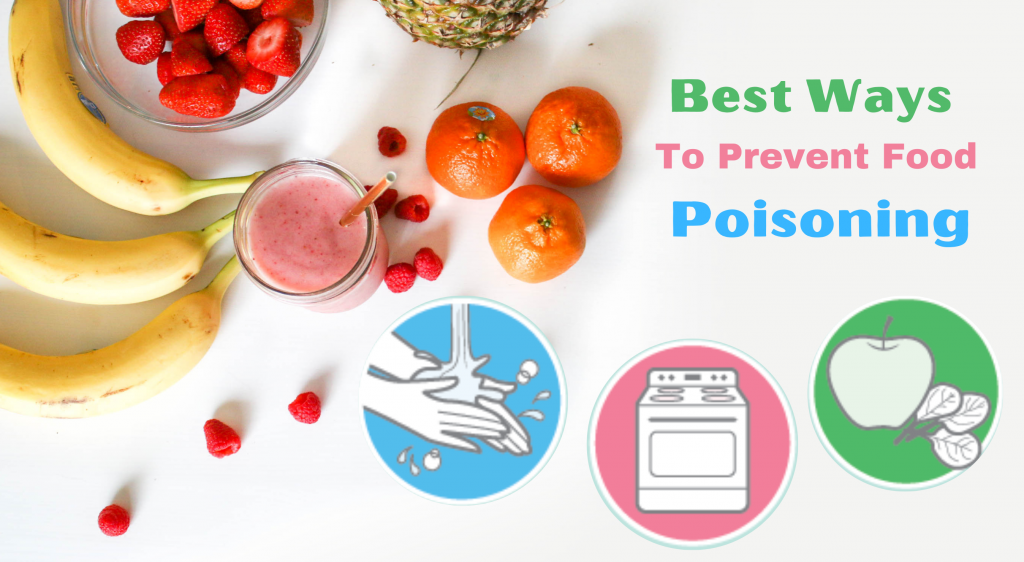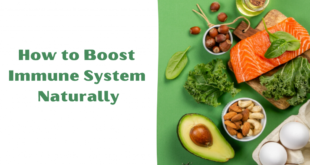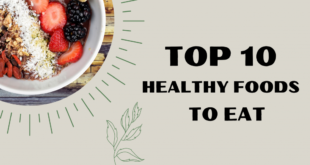In this article we have reviewed Best Ways To Prevent Food Poisoning, Here are the best tips to help you reduce your risk of food poisoning at home.

Best Ways To Prevent Food Poisoning
Wash your hands
- Wash your hands thoroughly with water and soap (hot or cold) and dry them:
- Before handling food
- After handling raw food – including meat, fish, eggs, and vegetables.
- After touching the bin, go to the toilet, blow your nose or touch animals (including pets)
When should you wash your hands?
- After using the toilet or changing the nappy.
- Before and after handling raw foods such as meat and vegetables.
- Before eating or handling food.
- After blowing your nose, you are sneezing or coughing.
- Before and after treating a cut or wound
After touching animals, including pets, feeding them, and cleaning their cages.
Washing your hands properly removes dirt, viruses, and bacteria to prevent them from spreading to other people and objects that can spread diseases such as food poisoning, the flu, or diarrhoea.
This can prevent people from getting the infection and spreading it to others.
It can also help prevent infection when you visit someone in a hospital or other healthcare setting.
Wash worktops, knives and utensils
Wash worktops, knives, and utensils before and after preparing food, especially when touching raw meat (including poultry), raw eggs, fish, and vegetables.
You do not need to use antibacterial sprays: warm, soapy water is fine.
Wash dishcloths
Wash dishcloths and tea towels regularly, and let them dry before reusing them. Dirty, damp cloths are an excellent place to spread germs.
Use separate chopping boards
Use separate cutting boards to prepare raw food, such as meat and fish. This is to avoid contaminating ready-to-eat food with harmful bacteria present in raw food before it is cooked.
Keep raw meat separate
It is essential to keep raw meat away from ready-to-eat foods, such as salads, fruits, and bread.
This is because these foods will not be cooked before you eat, so any bacteria that come from eating raw meat will not be killed.
Store raw meat on the bottom shelf
Always cover the raw meat and store it on the bottom shelf of the refrigerator, where it cannot touch or drip other food.
Cook food thoroughly
Make sure chicken, pork, sausages, and kebabs are cooked until hot, without pink meat. Don’t wash raw meat (including chicken and turkey) before cooking as it can spread bacteria around your kitchen.
Freezing raw chicken lowers the level of Campylobacter bacteria but does not eliminate them. The safest way to kill all traces of Campylobacter is to cook the chicken thoroughly.
Keep your fridge below 5C
Keep your refrigerator temperature below 5C and use a refrigerator thermometer to check it. Avoid overfilling your fridge – if it is too full, the air may not circulate properly, affecting the overall temperature.
Do not leave the refrigerator door open unnecessarily.
Cool leftovers quickly
If you have cooked food that you will not eat right away, cool it as soon as possible (within 90 minutes) and store it in the fridge or freezer.
Use anything left over from the refrigerator within 2 days and do not reheat food more than once.
Respect ‘use-by’ dates
Don’t eat food that has passed its expiration date, even if it looks good and smells good. Usage dates are based on scientific tests that show how quickly harmful insects can form in packaged foods.
So here are the Best Ways To Prevent Food Poisoning. if you like this article then please share this with your friends.
Also, Read How to Boost Immune System Naturally Click Here.
 Infoably Bringing you the Best Information
Infoably Bringing you the Best Information



